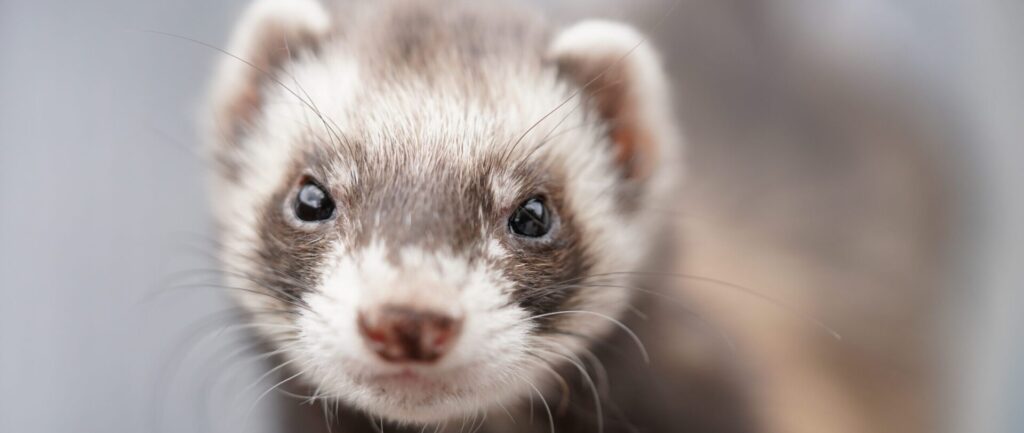
Ferrets
Our How-To Guide for Ferret Care
Because of their short digestive tract, ferrets cannot digest fibre, plant material & carbohydrate very well. Therefore they are meat eaters. They have a high metabolism & so should always have food and fresh water available in heavy bowls that they cannot tip over. They require a high protein & high fat diet (greater than 30% and 20% respectively) and so a high quality kitten kibble or specially formulated commercial ferret diet is best. Raw bones such as chicken wings & necks can be helpful to prevent tartar build up but can often be hidden away & not eaten.
Ferrets are susceptible to Distemper & require vaccination at 12 & 16 weeks of age then yearly for life.
Desexing is highly recommended for males and vital for females. A female ferret remains in season until mated, and if does not become pregnant will develop an irreversible anaemia resulting in death within 2-3 months. Desexing will help reduce a ferrets musky odour but nothing will eliminate it completely. Ferrets in the USA often have their scent glands surgically removed, but this procedure is not done here as it is ineffective & unnecessary.
Ferrets are susceptible to fleas, intestinal worms, heartworm & ear mites. The simplest & most effective means of controlling all these parasites is by using Revolution Puppy & Kitten top spot once monthly. While not registered for use in ferrets, it is safe to use.
Ferrets are European animals and so are not bothered by cold weather, but succumb to heat stress very easily. When temperatures exceed 25 C, action must be taken to cool them down. This may include wet towels in & around their cage, frozen water bottles and bringing them indoors with air conditioning. If your ferret becomes weak with hot feet & diarrhoea, seek veterinary attention immediately.
Ferrets are very susceptible to human colds and influenza viruses. People with colds should refrain from handling their ferrets as much as possible.
While they can spend up to 16 hours a day sleeping, when awake ferrets are very curious & playful. Any toys given to a ferret must not be easily chewed or broken apart (ie soft foam balls) as these can be swallowed & cause an obstruction.
To schedule an appointment for your ferret book online or call our friendly staff

